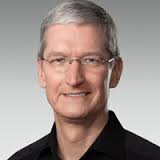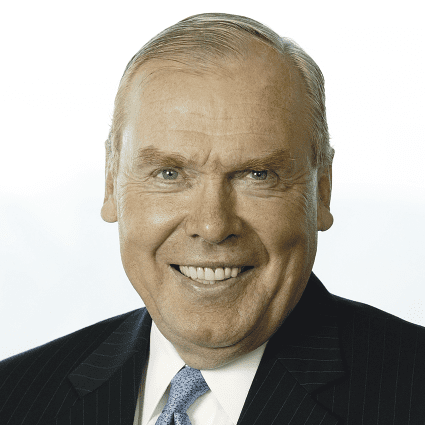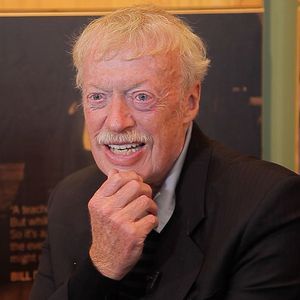The Business of Giving Back: 5 Philanthropist MBAs

There has long been a tradition of philanthropy in the MBA community. Graduate degrees in business place a great deal of importance on ethics. As a result, alumni are often inspired to give back once they achieve success. The philanthropic efforts of some notable MBA graduates continue well into retirement. Here are several examples of philanthropist MBAs that stood out to us.
5 Philanthropist MBAs
Stanford
Stanford MBA ’62 Phil Knight’s Nike brand is synonymous with cutting-edge sportswear and athletic shoes—Air Jordans being a prime example. The seeds for what would become Knight’s $28 billion master plan were planted as part of his time at Stanford, during which he wrote a dissertation entitled, “Can Japanese Sports Shoes Do to German Sports Shoes What Japanese Cameras Did to German Cameras?” After stepping down as CEO in June 2015, Knight has donated $500 million to cancer research at Oregon Health & Science University and $400 million to his alma mater Stanford to develop Knight-Hennessy Scholars, a graduate leadership program to “rival Rhodes scholarships.” Knight said during an interview with Stanford GSB’s blog, “Stanford was an important part of my life. This is a once-in-a-lifetime chance to give back to the School and help it continue to push the boundaries of excellence in management education.”
Duke (Fuqua)

Melinda Gates
Duke Fuqua MBA ’87 Melinda Gates is a co-founder of the Bill & Melinda Gates Foundation, the largest private foundation in the world with an endowment of approximately $40 billion. She told Duke Today Magazine in 2012:
“The education I received at Duke has always inspired and motivated my philanthropic work, and I hope to share that sense of optimism and the rigor needed to pursue ambitious goals with this generation of students.”
After stepping down as Microsoft’s General Manager of Information Products in 1996, she and her husband have led major philanthropic efforts in the areas of global development, health, policy and advocacy, and US educational initiatives, including a $776 million global nutrition investment and a $50 million donation in 2014 to support emergency response to Ebola in West Africa.

Tim Cook
Fellow Blue Devil, Duke Fuqua MBA ’88 and Apple CEO Tim Cook has steered the company with a leadership style he described to students and alums in a 25th reunion address as a combination of “people, strategy, and execution.”
“If you get those three right the world is a great place,” he explains. In the process Cook has accrued a fortune of nearly $800 million between Apple shares and restricted stocks, the entirety of which he plans to donate to charity. According to an article in the Guardian, Cook has already bequeathed $50 million to Stanford hospitals, including “$25 million set aside for a new children’s hospital.”
Harvard

Michael Bloomberg
Like Cook, Harvard MBA ’66 and former mayor of New York City, Michael R. Bloomberg also plans to alleviate his estimated $32 billion fortune before he kicks the bucket. But Bloomberg has a long history of giving that dates back to a Harlem homework help program he started with $10,000 in Salomon Brothers money back in the 70’s, according to a recent New York Times article. Today, Bloomberg Philanthropies is ranked 10th on Foundation Center’s list of U.S. grantmaking foundations, directing its resources to innovative educational, environmental, healthcare, arts, and government initiatives. The organization has “committed $53 million to reform fisheries and increase sustainable populations through the Vibrant Oceans Initiative,” $15 million to New York cultural institutions and the Art Institute of Chicago, and $220 million to anti-smoking efforts, among a plethora of charitable endeavors.
USC (Marshall)

Jon Huntsman Sr.
Perhaps Bloomberg Philanthropies has taken some cues from USC Marshall School of Business ‘66 alumnus Jon Huntsman Sr., founder of the Utah-based Huntsman Chemical Corporation, who has committed 80% of his total worth to charitable causes. Huntsman Corp is the world’s biggest privately held chemical company, known for manufacturing most of the planet’s polystyrene and creating the Big Mac’s signature clamshell container.
According to a USC press release, Huntsman “was ranked one of the 10 top philanthropists by Forbes magazine in 1997, with lifetime charity donations then of $250 million.” Since then, Forbes reports that he’s committed $1.2 billion to his Huntsman Cancer Institute—a cause that’s close to Huntsman’s heart as both his parents succumbed to the disease and he too has experienced 4 bouts with prostate cancer during the 90’s—as well as $26 million to the University of Utah’s business school and $50 million to Armenian relief efforts following the 1988 earthquake.
The Wall Street Journal recently published an article about the importance of a company’s philanthropic profile to millennial consumers. Experts report that millennials tend “to favor socially conscious, globally minded charities that champion civil rights, good business practices and environmental protection.” As more millennials from increasingly diverse cultural and socioeconomic backgrounds apply to business school, social entrepreneurship is becoming an indispensable component of any MBA program profile.

